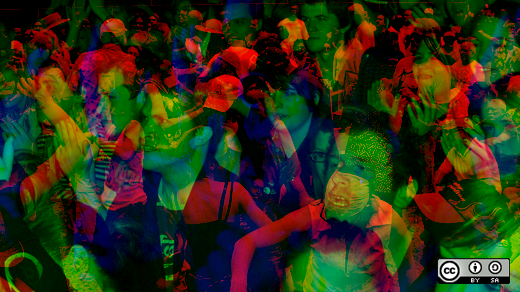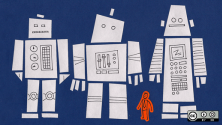What does it take to find a cure for Alzheimer’s? Can we spare returning soldiers from post-traumatic stress disorder?
The moon shot is on collaboration and sharing. And just as in the moon race, the challenge is far too great for a single group to undertake it alone.
So former U.S. Rep. Patrick Kennedy recently co-chaired a conference in Boston, MA to spur collaboration in hopes of accelerating the development of cures and treatments for brain diseases. The One Mind for Research Scientific Forum started on the eve of the fiftieth anniversary of the challenge to send a man to the moon within a decade, issued by his uncle, President John F. Kennedy. Patrick Kennedy has called the forum a “moon shot into the mind.”
In an era where funding for brain research is declining, scientific expertise is scattered, research is fragmented, and the knowledge we do possess is isolated in research silos, Kennedy wanted to gather a broad coalition. This three-day conference brought together scientists, researchers, policy makers, and advocates involved with neuroscience and brain research in effort to launch a new ten-year research agenda that creates incentives for collaborations that many hope will lead to a deeper understanding of brain conditions and new treatments.
Traditionally there isn't a research data sharing culture in neuroscience. Scientists more commonly hold data closely within their own laboratories. But many are striving to change that.
The Whole Brain Project, another group working to unify neuroscientists' disparate brain research data, proposed developing open source networks. In November 2009, researchers at the University of California at San Diego created the Whole Brain Catalog, which the website describes as “a ground-breaking, open-source, 3-D virtual environment that aims to connect members of the international neuroscience community to facilitate solutions for today’s intractable challenges in brain research through cooperation and crowd sourcing.” The catalogue's front end is based on an open source game engine where the work to build and populate it is done collectively and openly.
In an interview on HCPLive, Mark Ellisman, PhD, co-creator of the catalog, said, “It is meant to make it easy for anyone interested in the brain to find their way into a treasure trove of information and to help assemble all information about the brain in a way that makes it accessible and freely available, like Wikipedia on steroids...you have data and search capabilities that bring all kinds of information that’s accruing from researchers around the world.”
Another new technology, a detailed cartography of the fiber connections made in the brain, has also recently been made available as an open source program. EPFL, The University of Lausanne (UNIL), and the University Hospital (CHUV), in collaboration with Harvard Medical School, developed a computer program that analyzes the diffusion of water molecules in the brain to develop a map of the brain's connections. These maps provide for a comparative study of different afflictions related to brain connectivity, such as epilepsy and schizophrenia.
“By making this program open source, we are contributing to a scientific community where increasing numbers of scientists are freely sharing their work. This way the entire community can improve and build upon work done by others,” explained Jean-Philippe Thiran, an EPFL professor and head of the Signal Processing Laboratory 5.
Researchers hope these programs and the others that follow will considerably open the field of neurobiological research, which will lead to a greater understanding of the human brain.
Perhaps by breaking open the research data silos, there will be a day when a surgeon can go into the brain of a man with Alzheimer's and give him back his memories.







Comments are closed.